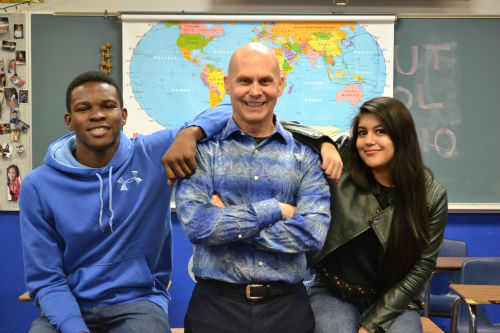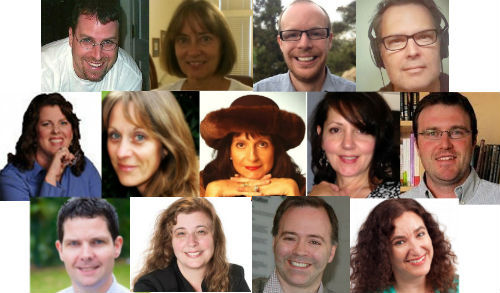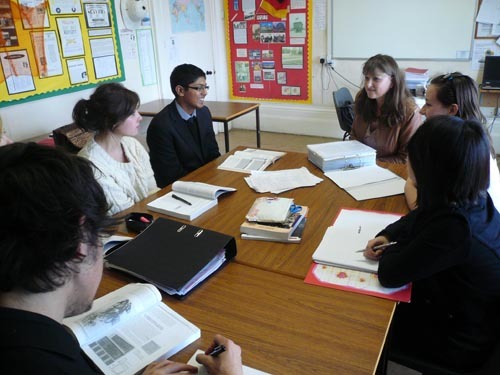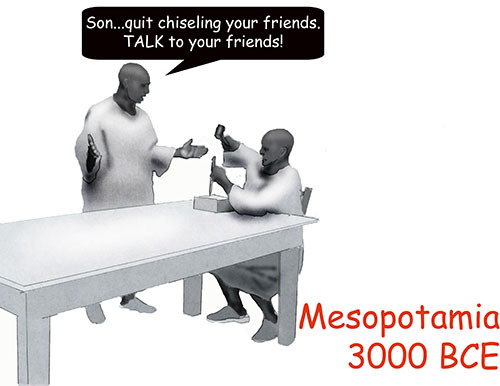
DR. טרייסי ג. ברנס הוא מוביל פרויקטים במרכז OECD למחקר וחדשנות חינוכית, המינהל לחינוך ומיומנויות בפריס (@OECD_Edu). היא נחשבת למומחית עולמית בנושא הבריונות. היא מציינת “יש הרבה מאוד תשומת לב פוליטית המוקדשת לנושא” והיא מסכמת את הבעיה הגלובלית הרצינית הזו באופן הבא:
- מבחינת השכיחות, the bottom line is that it appears that traditional forms of bullying are remaining steady in terms of frequency while cyber bullying is increasing, although it is still not as common as face to face bullying.
- בריונים, motivated to enhance their status among their peers, bully in front of witnesses, whose approval (or at least tacit silence) הוא מכריע. They tend to choose their victims from those who sit in the bottom line of the social ledger, those least able to fight back. And it works, both to raise the popularity of the bully and to hurt the victim.
- There are several commonly accepted myths about the causes of bullying for which there is no supporting evidence. These include claims that bullying stems from large class or school sizes, competition for grades, or other school life pressures. Another common assumption is that bullies suffer from poor self-esteem and insecurity.
מה אפשר לעשות? שאלנו למעלה 12 Global Teacher Bloggers to share their answers to this question: מה הן כמה דרכים אמיתיות שראיתם בריונות מופחתת?
הופנה על ידי למעלה 12 Global Blogger Todd Finley (finleyt), ג'יימס אלן Sturtevant (jamessturtevant), Social Studies teacher at Big Walnut High School in Sunbury, Ohio and Author of You’ve Gotta Connect, makes the bold recommendation that reaching out to bullies can sometimes be as important as punishment. In his words, “Harsh consequences don’t always work, can make bullies worse, and sometimes evoke retribution for unfortunate victims.” Reaching out does not mean excusing but remaining in stealth dialogue to foster potential positive influence. קראו עוד.
פאולין הוקינס (PaulineDHawkins), מחבר Core נדיר: 25 דרכים לעזור לילדך להצליח במערכת חינוך קאטר קוקי, says the only way to reduce bullying is to be a good role model in your treatment of others, as a parent or teacher. She cautions, “The anti-bullying programs in schools will have little influence on students if the adults in their lives are not teaching and modeling respect.” קראו עוד.
האדם שטיינר (steineredtech) dispels myths about cyberbullying and provides much needed pragmatic advice to school administrators. One of many gems is that no school, no matter how genial it is in real life, is exempt from online bullying. קראו עוד.
מאוסטרליה, ליסה קורי (RippleKindness), יוצר של פרויקט חסד ריפל, provided two insightful articles this month. The first proposes that social and emotional learning must be emphasized in schools to reduce bullying. Rather than merely blaming the bully, other factors must be looked into-such as a lack of character building education. קראו עוד.
Lisa’s second article elaborates on the beneficiality of emotional learning by pointing to studies that show how the practice of kindness not only produces joy but also reduces bullying in schools. קראו עוד.
ויקי דייויס (coolcatteacher) uses personal experience to give surefire ways to nip bullying in the bud. One of her advisements is to form allies with peers. Her real world advice will be a must to concerned students. קראו עוד.
מניו זילנד, קרייג קמפ (mrkempnz) offers three tools that parents and administrators will find very assuring in combating bullying. One is creating a culture of trust from the top down, another is educating parents. He provides useful tips for how to get started in this process. קראו עוד.
טום בנט (@ Tombennett71), ג'ו באוור, סוזן בולס (FloridaKteacher), ליסה קורי, ויקי דייויס, טוד פינלי, פאולין הוקינס, קרייג קמפ, קארן Lirenman (KLirenman), האדם שטיינר, סילביה Tolisano (langwitches), וריצ'רד ולס (iPadWells) הם גלובל החיפוש לחינוך 2014 למעלה 12 Global מורה בלוגרים.
Our special thanks to Dr. Tracey Burns at the OECD in Paris. לקבלת מידע נוסף: http://oecdeducationtoday.blogspot.fr/2014/10/combatting-bullying-in-schools.html ו http://www.oecd.org/edu/ceri/Spotlight%205-%20Infinite%20Connections.pdf
(Lead Photograph featuring TJ Coates and Dorali Arambula with James Alan Sturtevant is courtesy of Caroline Prater)


הצטרף אליי ולמנהיגי מחשבה מוכרת בעולם כולל סר מייקל ברבר (בריטניה), DR. מיכאל בלוק (ארה"ב), DR. ליאון בוטשטיין (ארה"ב), פרופסור קליי כריסטנסן (ארה"ב), DR. לינדה דרלינג-Hammond (ארה"ב), DR. MadhavChavan (הודו), פרופ 'מיכאל Fullan (קנדה), פרופ 'הווארד גרדנר (ארה"ב), פרופ 'אנדי הארגריבס (ארה"ב), פרופ 'איבון הלמן (הולנד), פרופ 'קריסטין Helstad (נורווגיה), ז'אן הנדריקסון (ארה"ב), פרופ 'רוז Hipkins (ניו זילנד), פרופ 'קורנליה הוגלנד (קנדה), הכבוד ג'ף ג'ונסון (קנדה), גברת. שנטל קאופמן (בלגיה), DR. EijaKauppinen (פינלנד), מזכיר המדינה TapioKosunen (פינלנד), פרופ 'דומיניק לפונטיין (בלגיה), פרופ 'יו לאודר (בריטניה), לורד קן מקדונלד (בריטניה), פרופ 'ג'ף מאסטרס (אוסטרליה), פרופ 'בארי McGaw (אוסטרליה), שיב נדאר (הודו), פרופ 'R. נטריגין (הודו), DR. PAK NG (סינגפור), DR. דניז אפיפיור (ארה"ב), שרידהר ךאג'גופלן (הודו), DR. דיאן ראוויטש (ארה"ב), ריצ'רד וילסון ריילי (ארה"ב), סר קן רובינסון (בריטניה), פרופ Pasi Sahlberg (פינלנד), פרופ Manabu סאטו (יפן), אנדריאס שלייכר (PISA, OECD), DR. אנתוני סלדון (בריטניה), DR. דוד שפר (ארה"ב), DR. קירסטן Immersive Are (נורווגיה), קנצלר סטיבן ספאן (ארה"ב), איב Theze (LyceeFrancais ארה"ב), פרופ 'צ'רלס Ungerleider (קנדה), פרופ 'טוני וגנר (ארה"ב), סר דייוויד ווטסון (בריטניה), פרופסור דילן Wiliam (בריטניה), DR. מארק Wormald (בריטניה), פרופ 'תיאו Wubbels (הולנד), פרופ 'מייקל יאנג (בריטניה), ופרופ 'Minxuan ג'אנג (סין) כפי שהם לחקור שאלות חינוך תמונה הגדולות שכל המדינות מתמודדות היום. גלובל החיפוש לחינוך עמוד קהילה
C. M. רובין הוא המחבר שתי סדרות מקוונות רבים קוראות שלהיא קיבלה 2011 הפרס אפטון סינקלר, “גלובל החיפוש לחינוך” ו “איך וויל אנחנו קראו?” היא גם מחברם של שלושה ספרים רבי מכר, כולל אליס בארץ הפלאות Real, הוא המוציא לאור של CMRubinWorld, והוא משבש קרן עמית.
עקוב C. M. רובין בטוויטר: www.twitter.com/@cmrubinworld





תגובות אחרונות